Here’s where to find all of Japan’s new Pikachu Pokémon manhole covers in Yokohama【Photos, maps】

Maps, walking routes, and more to help you navigate your Poké-pilgrimage in the bayside city south of Tokyo.
Located about half an hour south of downtown Tokyo, Yokohama is a lively, cosmopolitan city (the second-largest in Japan), but still has a decidedly laidback vibe compared to Japan’s capital. In particular, Yokohama’s seaside Minato Mirai and Yamashita Park areas are always great places to walk around and snap some photos, enjoying the cool ocean breezes as you admire the views of the bay and the unique skyline featuring a mix of modern and old-school architecture.
And as of this week, there’s another reason to grab your camera and head to Yokohama: a slew of brand-new Pokémon manhole covers featuring the face of the franchise himself: Pikachu!
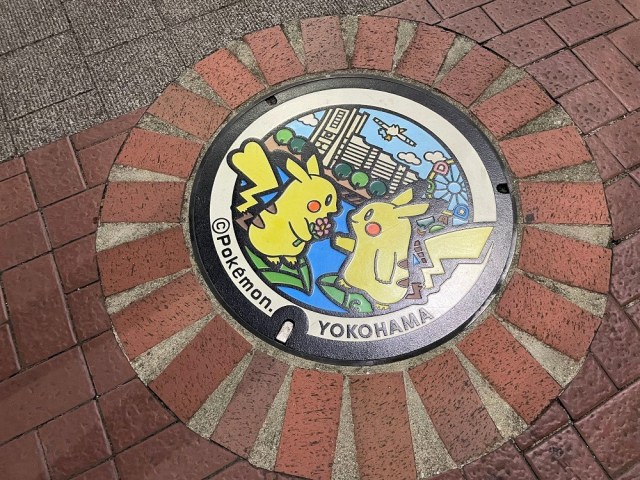
Yokohama now has a total of five permanent Pokémon manhole covers (also known as Pokéfuta or Pokélids). They’re all on public sidewalks, so you can visit them at any time of day, and with Japan in the middle of a severe heatwave, I opted for a nighttime circuit of the five sites, starting with the one outside JR Sakuragicho Station, which can be accessed by the Negishi and Yokohama Lines. To get to the first Pokéfuta, exit the JR Sakuragicho Station by either of its two east exit passages.
▼ Sakuragicho Station currently has some special decorations for the Pokémon World Championships, which are taking place in Yokohama this week.
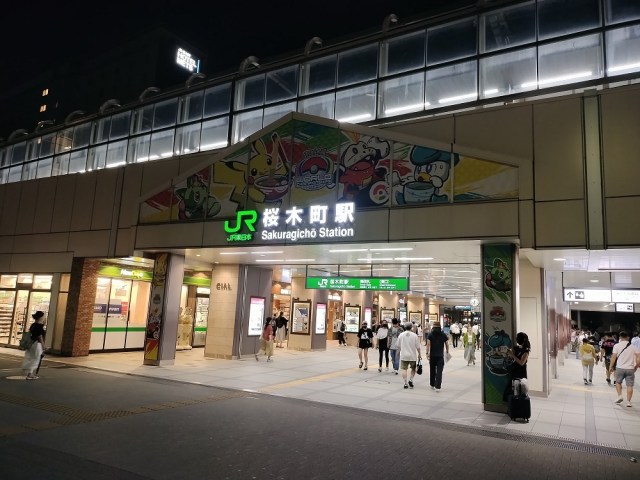
Once outside of the station, you’ll find yourself in a large pedestrian plaza, with views of gigantic skyscrapers and a colorful Ferris wheel drawing your eyes up. You’ll want to look down, though, so that you can find…
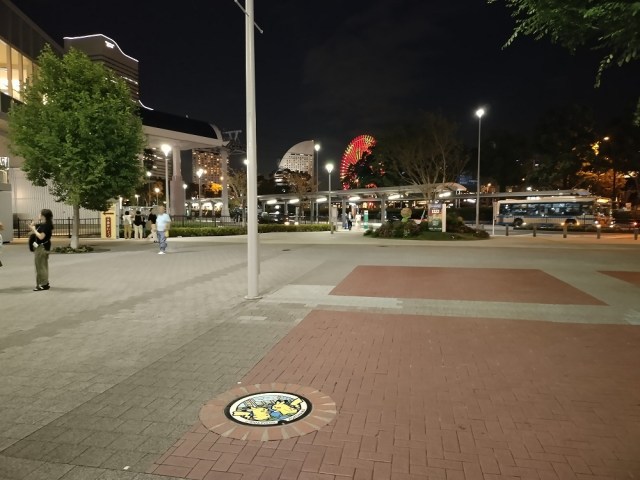
…the first Pokéfuta, showing a pair of Pikachus on a date.
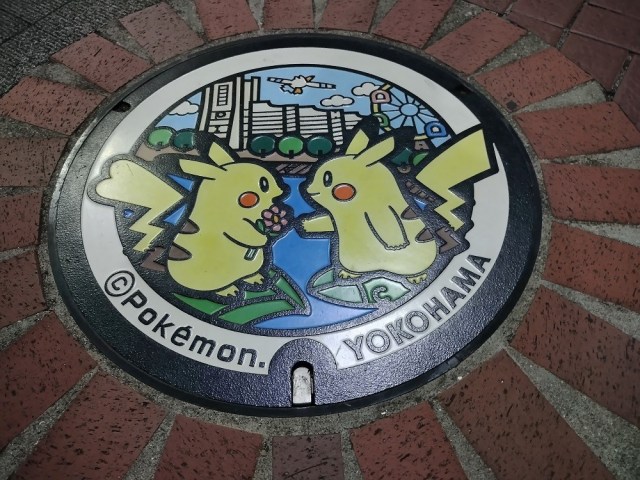
Actually, this Pokémon manhole cover has been in place for a while now, since it was installed as part of the festivities for Yokohama’s annual Pikachu Outbreak event, and it’s the four other Pikachu covers that are the new ones. That doesn’t make the Sakuragicho Staton Pokéfuta any less adorable, though, and if you’re arriving in Yokohama by train, its proximity to the station makes it the easiest cover to start your walk from.
▼ The Sakiragicho Station Pokéfuta is roughly in front of the building’s Starbucks branch, with its exact location here.
▼ One down, four to go!
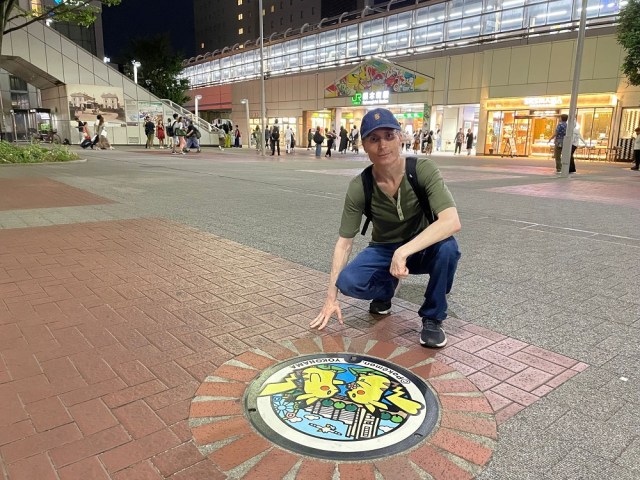
From here, the closest other cover is in Nipponmaru Memorial Park, at the center of which is docked the Nipponmaru, a retired sail training ship that’s now a maritime museum. The park is essentially across the street from Sakuragicho Station, on the far side of the pedestrian plaza and bus rotary, so it’ll only take about five minutes on foot to get there.
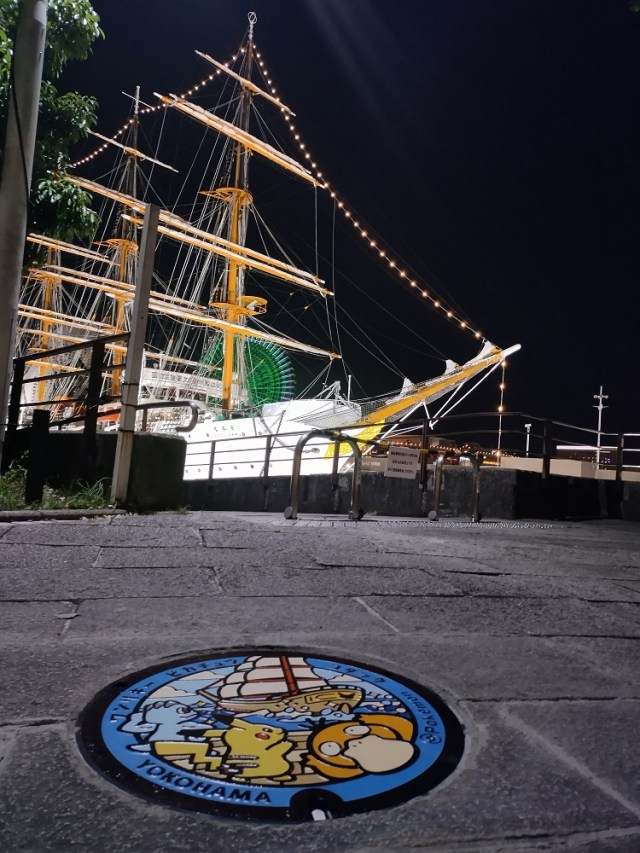
The Nipponmaru itself is hard to miss, and using it as a navigation point, you’ll find the Pokéfuta to the front and right of the boat.
▼ Or off its starboard bow, if you’re feeling nautical.
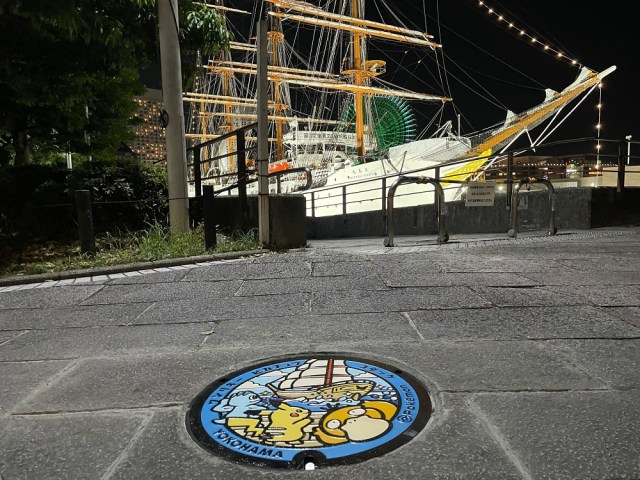
▼ Walking route from Sakuragicho Pokéfuta to Nipponmaru Pokéfuta

Here we’ve got a single Pikachu and Machop waving at the Nipponmaru. Psyduck is there too, but seems to be preoccupied trying not to freak out, as is so often the case.
Something that’s especially nice about the Nipponmaru Pokéfuta is that its situated in a spot where the nearby streetlamp creates sort of a spotlight effect, making it easy to find and also easy to photograph if you’re visiting after sundown.
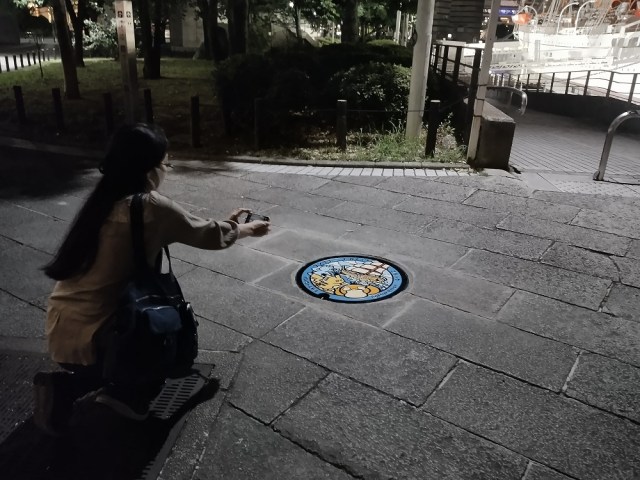
Next up, the Pokéfuta in Rinko Park, which sits on a point behind the along the waterfront behind the sail-shaped Intercontinental Hotel, not far from the Pukarisanbashi pier where Yokohama’s sea bus ship comes in.
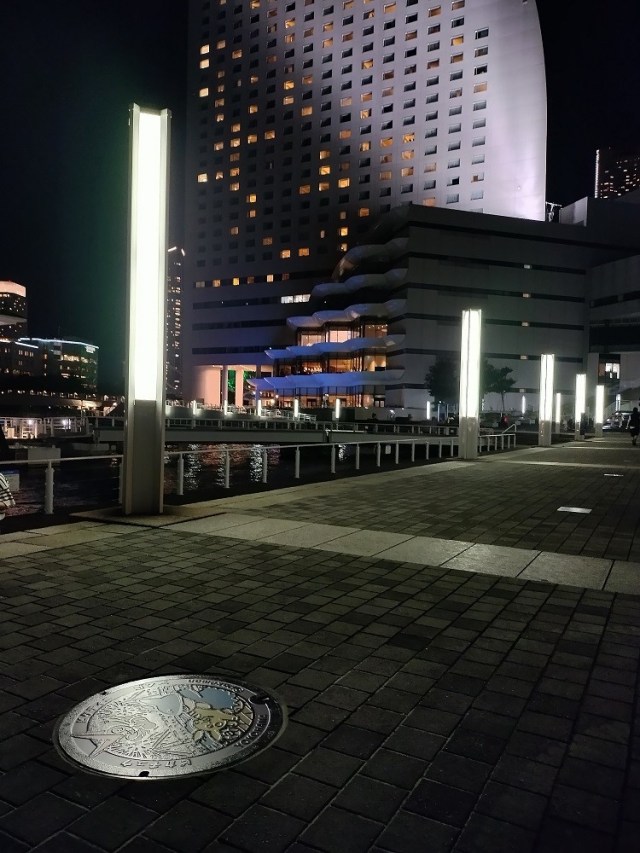
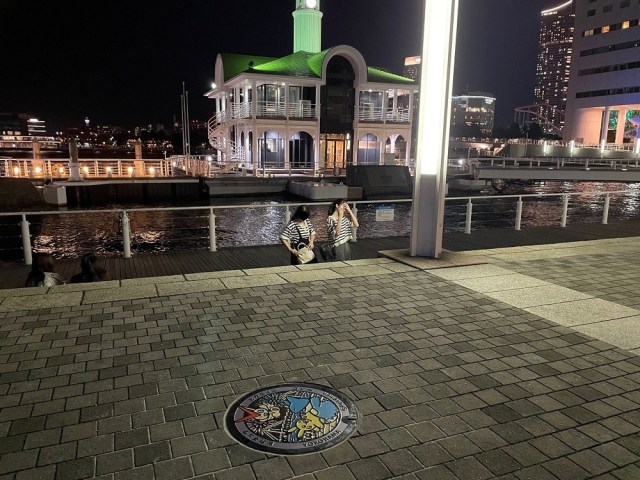
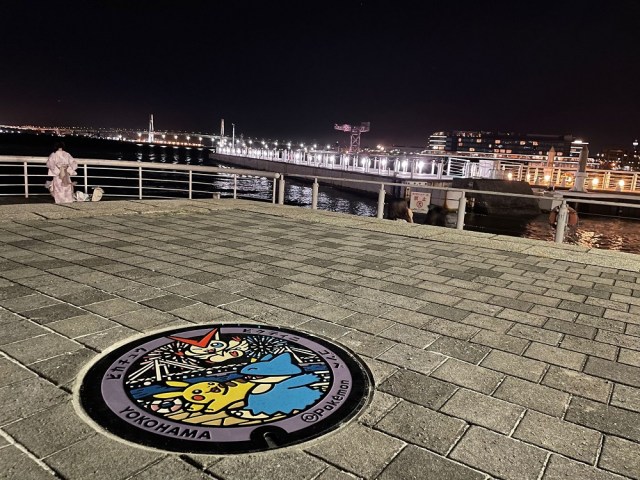
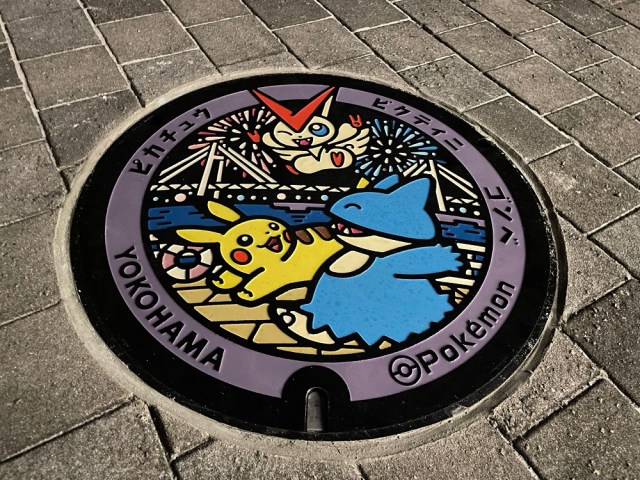
▼ Google Maps gives a time of 13 minutes to walk from the Nipponmaru Pokéfuta to the Rinko Park cover, and along the way you’ll get some great views of the canal and Ferris wheel.
Like with the Nipponmaru Pokéfuta, the Rinko Park one is nicely illuminated by the park’s lighting. This time the Pocket Monster Lineup consists of Pikachu, Victini, and Munchlax, frolicking at Minato Mirai fireworks summertime festival, one of the biggest in Japan, with the Yokohama Bay Bridge in the background.
▼ You can also see the real-world Yokohama Bay Bridge behind the cover.
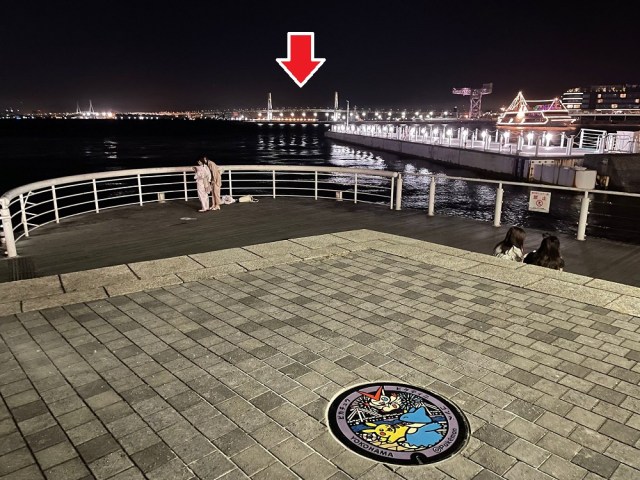
From here, we’ve got a pretty long walk (between around 15 to 20 minutes, depending on exact route, by Google’s reckoning) to our next stop, the Pokéfuta near Akarenga, a.k.a. the “Red Brick Warehouse.”
▼ Shortest route from Rinko Park Pokéfuta to Akarenga Pokéfuta
If that feels like a bit too far to trek all at once, a less direct route, shown below, will take you by the Cosmo World Amusement Park, World Porters shopping center, and Cup Noodle Museum, if you want to break the walk up into two parts.
Right now, the longer route will also let you check out some other cool Pokémon art displays that are temporarily in place to celebrate the World Championships. There’s a giant Cup Noodle Pikachu photo spot inside the museum lobby (though only accessible during opening hours)…
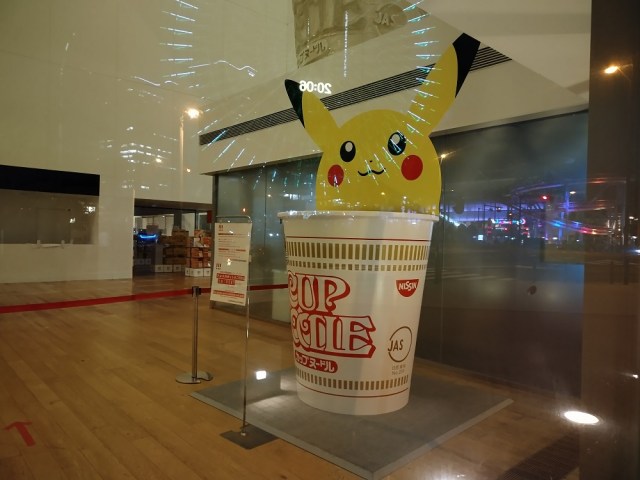
…and as you walk past World Porters, in the distance you can see a huge Poké Ball made out of lights.
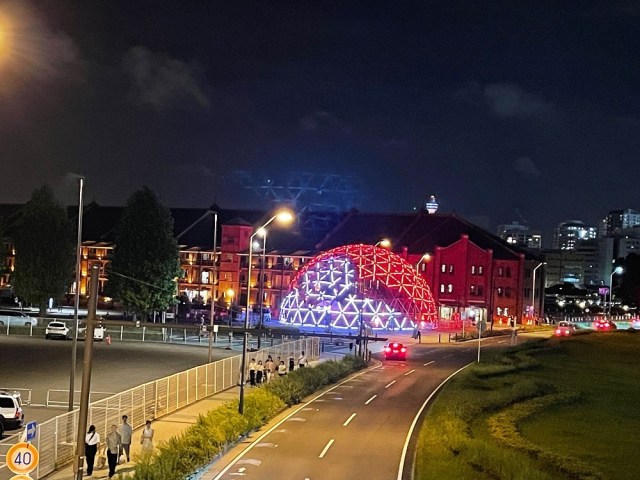
▼ It even color-cycles to change into upgraded versions of the Pocket Monster-capturing device.
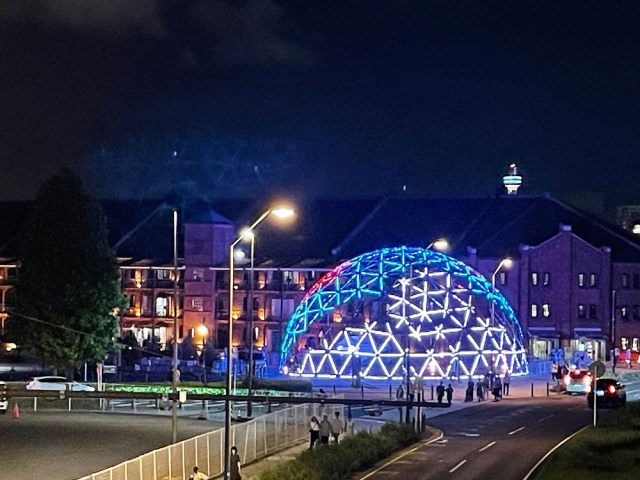
Akarenga is actually two buildings of shops and restaurants, with a large plaza between them. If you’re approaching from Rinko Park, though, you’ll find the Akarenga Pokéfuta on the far side of both buildings, in Akarenga Park.
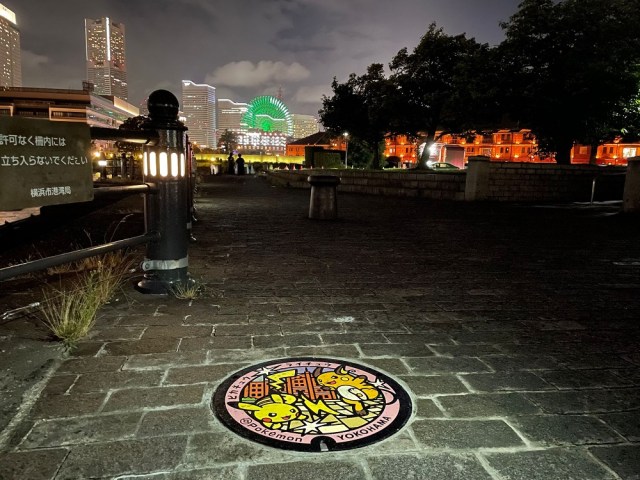
Unlike the three previous Pokéfuta, this one, which depicts Pikachu and Raichu battling in front of Akarenga, isn’t illuminated, so you might need to shine your phone’s light around to find it at night. It’s located along the southern edge of the park, by the waterline and in front of some stone steps to the south of the restroom facilities.
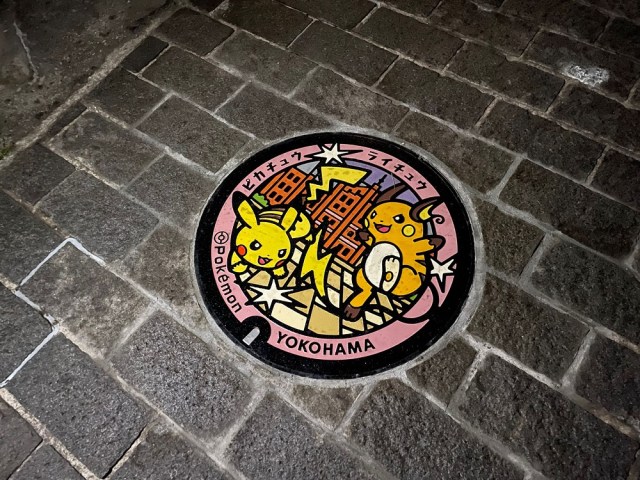
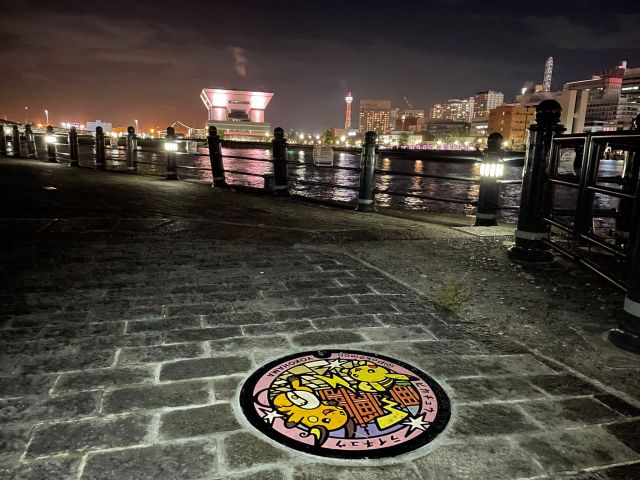
Incidentally, see that tower across the water, illuminated in red light, in the above photo? That’s where we’re headed for our last stop, the Marine Tower Pokéfuta,
▼ Route from Akarenga Pokéfuta to Marine Tower Pokéfuta
At 18 minutes, this is another long walk, but for the vast majority of it you’ll be walking along Zo no Hana and Yamashita Parks, both of which offer beautiful views of the bay. And if you decide to pop into a cafe or somewhere else along the way to rest your legs, Marine Tower is a pretty easy landmark to spot if you need to navigate back towards it after a detour.
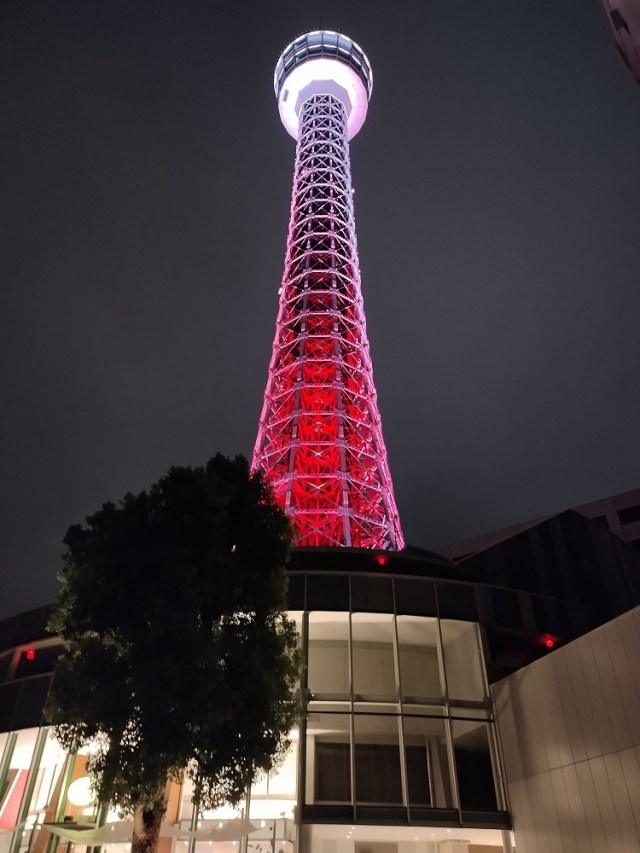
Note that while Marine Tower appears red in these photos (and did indeed used to be painted this color), the structure itself is actually silver. On this particular night, it was lit up in red as a throwback to its former appearance, but that’s not always the case.
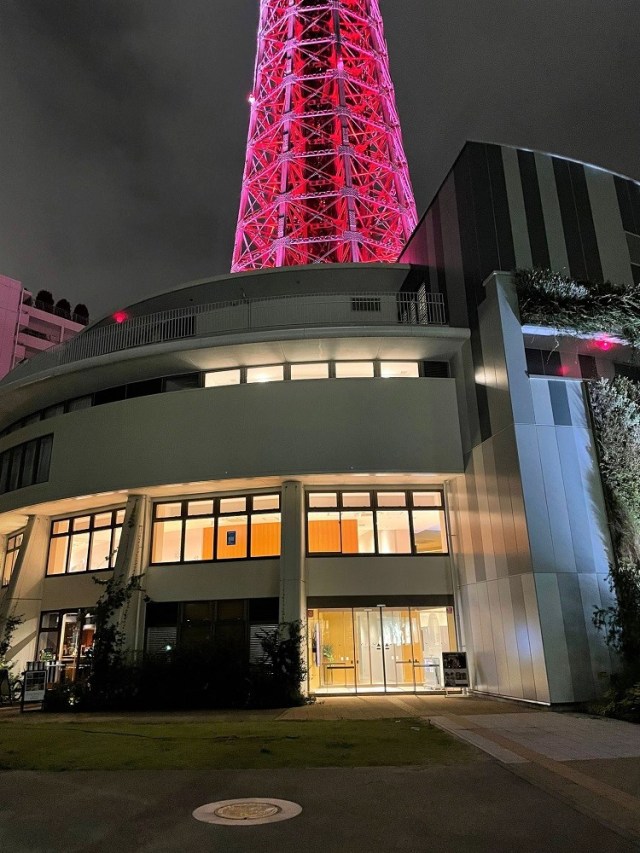
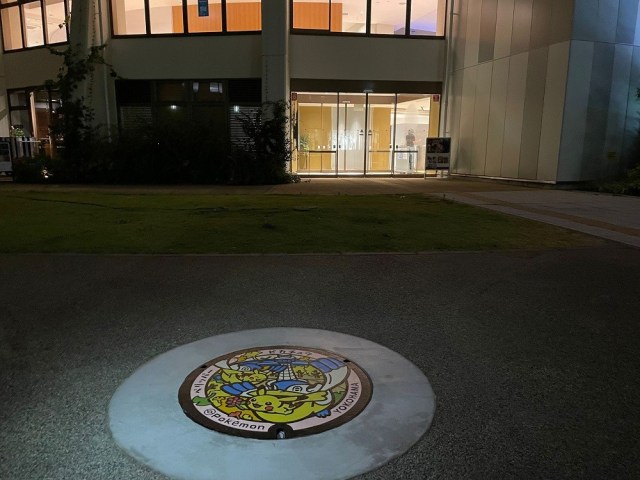
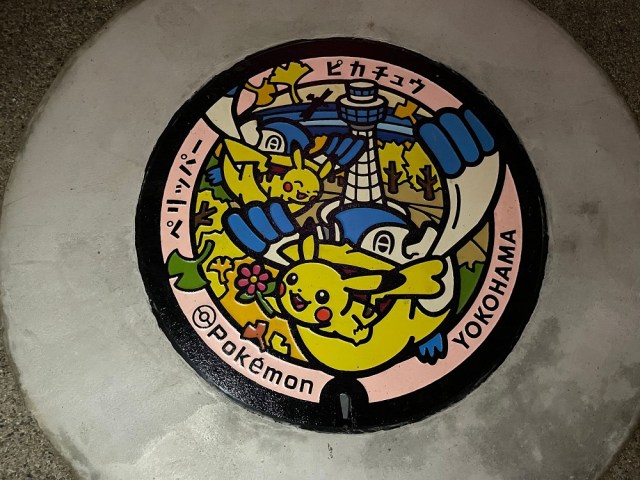
The Marine Tower Pokéfuta, with some Pikachus going for a ride in the beaks of Pelippers, is on the southern side of the tower’s base. In terms of ambient nighttime lighting, it’s in the middle of the pack. You’ll get a little from the tower and its lobby, but not a whole lot, so again, you might need to whip out your phone and turn on the light for optimum photos.
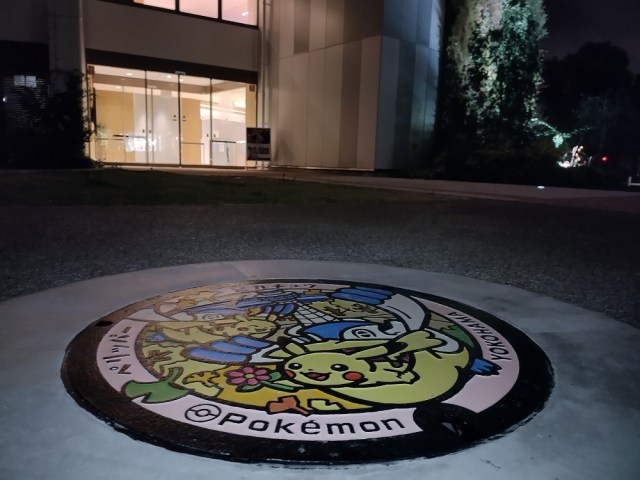
At this point, your feet are probably going to be pretty tired, but don’t worry, it’s a mercifully short two-minute walk to the Motomachi-Chukagai subway station on the Minato Mirai Line. Though it doesn’t directly connect to Sakuragicho Station, it can take you to Minato Mirai Station (which is just a few blocks away from Sakuragicho) and also on to Yokohama Station, where a number of train lines head north to Tokyo.
▼ Route from Marine Tower Pokéfuta to Motomachi-Chukagai Station
Of course, you might be plotting your own course for your Pokéfuta pilgrimage, especially if you’re checking out some of Yokohama’s other big attractions, like its life-size moving Gundam, so here are the exact coordinates for each of the Pokémon covers.
▼ Sakuragicho Station Pokéfuta
▼ Nipponmaru Pokéfuta
▼ Rinko Park Pokéfuta
▼ Akarenga Pokéfuta
▼ Marine Tower Pokéfuta
And remember, while the Pokémon World Championships are only going on this week, the Pokémon manhole covers are here to stay, so they’ll be waiting for you whenever you do make your way to Yokohama.
Photos ©SoraNews24
● Want to hear about SoraNews24’s latest articles as soon as they’re published? Follow us on Facebook and Twitter!
Credit:

0 comments:
Post a Comment